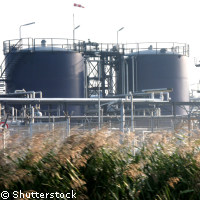Biofuels debate continues
European Commissioner for Agriculture and Rural Development, Mariann Fischer Boel, reaffirmed the European Union's dedication to biofuels at the Biofuels Markets Congress in Brussels on 13 March. She emphasised that biofuels were a significant part of the EU's renewable energies policy and 'an important weapon in the fight against climate change'. 'To some people, promoting biofuels is a stroke of genius. When they hear the word biofuels, in their mind's eye, they see shiny, modern production plants, cities that can breathe freely again and happy farmers with a good wage package in their pockets. To others, promoting biofuels is not a stroke of genius, but an act of madness,' Commissioner Fischer Boel added, referring to activists raising concerns about rising food prices, competition between food and fuel and biofuels that do not yield sufficient energy to justify their production. 'When they hear the word biofuels, they see rainforests that are crashed down to the ground and they see valuable crops used to feed SUVs.' In fact the start of the congress was marked by anti-biofuel activists trying to block the entrance to the exhibition site. The activist group 'Agrofools' had called the demonstration to express its doubts on the environmental benefits of biofuels. 'In reality, agrofuels will help to ensure that our oil addiction continues, and that unequal access to resources remains the same,' Agrofools commented on a flyer distributed outside the exhibition hall. 'Biofuels are controversial and so is the European policy on this subject,' Mrs Fischer Boel pointed out. 'But in fact it has a very solid justification and everyone in the sector within the European Union and outside the European Union can be confident that no policy u-turns lie ahead. Biofuels are neither a stroke of genius nor an act of madness. It's a real policy for the real world, and I think they are a valuable new tool in the policy tool box.' However, Commissioner Fischer Boel and other speakers at the opening session also stressed the importance of sustainability in biofuels production. Lord Ronald Oxburgh, chairman of biodiesel manufacturer D1 Oils and former chairman of Shell, predicted: 'Future biofuels can be entirely sustainable, but they are certainly going to be more expensive. Sustainable biofuel production depends on the integrated agri-production, going back to the ideals of the 18th and 19th centuries, when you didn't throw fruits away, when you grew a crop and used every part. So, in the future, there will be a crop that we grow for food, for raw materials for fuels together in different proportions, depending on the plants to meet local demands.' Lord Oxburgh also suggested that the organic material in industrial and urban waste as well as algae could provide a new and more sustainable sources of biofuels. The European Association for Bioindustries, EuropaBio, too, placed the emphasis on sustainability in biofuel production. Biotechnology can help achieve this sustainability, the organisation claimed, through biotechnological techniques that increase biomass yield per hectare of land, improve crop quality for higher biofuel yields, develop new energy crops to grow in areas formerly unsuitable for agriculture and develop micro-organisms and enzymes to speed up the biofuel production process. 'EuropaBio strongly supports the development of sustainability criteria for biofuels,' EuropaBio secretary general Johan Vanhemelrijck added. 'However, it is very important that sustainability criteria are technology-neutral, transparent, and based on scientific evidence and on clear definitions.' At the same time, at the ongoing EU summit heads of state and government had raised the possibility of reconsidering the biofuels target, according to press reports. The EU Member States are bound to use biofuels for 10% of their fuel for transport by the year 2020.



